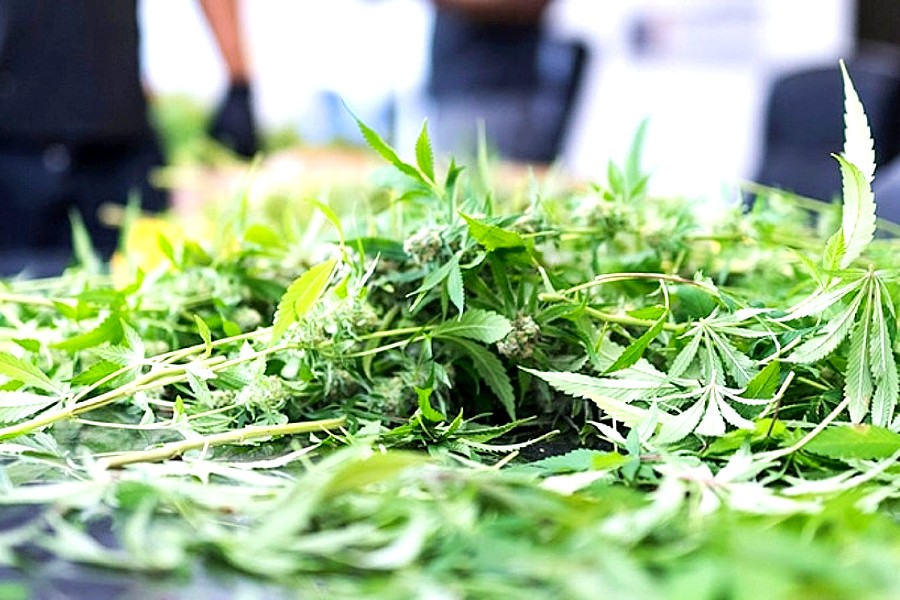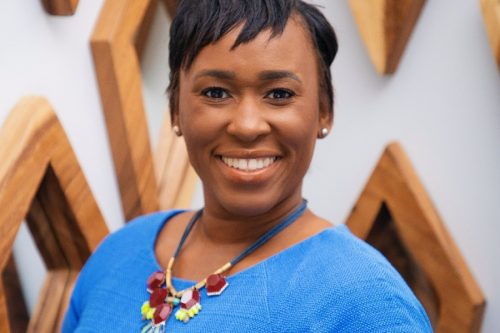
Today, the New York State Cannabis Control Board (CCB) voted to approve the Office of Cannabis Management’s New York Social Equity & Economic (NYSEE) Plan.
The NYSEE Plan reflects the broad principles of the revised Adult-Use regulations issued today as well as the statutory structure and intent of the Marihuana Regulation & Taxation Act (MRTA). This document is the result of the insight, expertise, and ongoing commitment of Office personnel, as well as their collaboration with over 400 community stakeholders from across the State.
The NYSEE Plan outlines an approach for developing a legal cannabis market based on the principles of equity, small business access, workforce support, regenerative local economic development, consumer education and uplifting those most harmed under prohibition. The Plan also outlines a myriad of business support services, such as financing, business incubation, and technical assistance for applicants and licensees who qualify. In addition, the Plan discusses antitrust measures, promoting a broad diversity of ownership and improving market access for small, independent businesses.
The Plan highlights and clarifies the nature of the collateral consequences caused by cannabis prohibition enforcement, including comprehensive data on cannabis arrests and convictions compiled in partnership with the Division of Criminal Justice Services. In addition, the Plan identifies medically unserved and underserved areas across the state, a crucial step in expanding the medical program to a new cohort of registered organizations and expanding existing medical operators.
New York State is the first to use arrest data to contextualize the State’s cannabis prohibition history in order to leverage it for economic development and community reinvestment. This is a significant step forward in establishing an equitable and just cannabis industry that benefits all New York communities.
“New York’s Cannabis Law lays out an approach that incorporates lessons learned from other states that have ended prohibition, now our current team picks up the torch with the heavy work of filling out the true blueprint to making New York’s cannabis market the most equitable, and successful, cannabis market in the nation. This living document represents the path forward for New York.” said Chris Alexander Executive Director of the New York State Office of Cannabis Management. “This Social and Economic Equity Plan does not run from New York’s past relationship with cannabis prohibition. It contextualizes it and provides the State with achievable steps to repair the harm that has been done and to be a national leader in the space. I am proud of the work of the Office to date and look forward to bringing the innovative strategies identified in this plan to life. Equity is not a thing. It is the thing.”
“I am honored to announce the release of the Social & Economic Equity Plan, which ushers in a new era for New York cannabis rooted in justice – social, racial and economic justice,” said Damian Fagon, Chief Equity Officer of the New York State Office of Cannabis Management. “This Plan is an honest articulation of the progressive principles of the Cannabis Law, informing the work to come and ensuring that those most harmed by prohibition reap the economic benefits of legalization. The recommendations within provide the roadmap to a cannabis market that reflects the state’s renowned spirit of enterprise, rich diversity, and agricultural roots. In time, New York will be the center of the cannabis industry globally. And together, New Yorkers will co-create a national model for reform with community reinvestment, equity, and justice at the forefront.”
CCB Approves 50 Conditional Adult Retail Dispensary Licenses
Today, the New York State Cannabis Control Board provisionally approved 50 Conditional Adult-Use Retail Dispensary (CAURD) licenses, increasing New York’s total provisional retail dispensary licenses to 215. The CAURD license is a central pillar of the Seeding Opportunity Initiative. Through the initiative, New York’s first legal adult-use cannabis retail dispensaries will be operated by individuals most impacted by the unjust enforcement of the prohibition of cannabis or nonprofit organizations whose services include support for the formerly incarcerated.
Awarding 50 additional CAURD licenses for justice-involved applicants represents New York State’s commitment to creating an equitable licensed cannabis industry. Small businesses are creating the foundation for New York’s licensed cannabis supply chain by providing safer and tested cannabis as outlined in the Seeding Opportunity Initiative, introduced by Governor Hochul in March 2022.
The Cannabis Control Board will continue reviewing CAURD license applications for consideration on a rolling basis. To be eligible, applicants were required to either have had a cannabis conviction, or be the family member of someone with a cannabis conviction, in addition to having owned a profitable business. Nonprofits with a history of serving formerly incarcerated or currently incarcerated individuals were eligible to apply for a CAURD license.
As stated in the MRTA, marijuana laws disproportionately impacted Black and brown communities. For the past 30 years, Black and Hispanic individuals in New York have been 15 and 8 times more likely, respectively, to be arrested than their white counterparts for cannabis-related offenses. These arrests perpetuated a cycle of poverty in Black and brown communities. Accordingly, the criteria for obtaining a CAURD license included having been impacted by the enforcement of the prohibition of cannabis.
“The approval of 50 additional CAURD provisional licenses by the Cannabis Control Board represents a major stride toward realizing our vision of an equitable cannabis industry. These licenses provide a unique opportunity for entrepreneurs to participate in the legal market, help us shape and develop retail as well as spur innovation and diversity in New York’s cannabis supply chain,” said Tremaine Wright, Chair of the Cannabis Control Board. “We extend our appreciation to Governor Hochul and the Legislature for their unwavering support as we work to expand New York’s cannabis market and meet our social equity goals.”
CCB Approves Revised Adult Use Regulations that Establish Rules for a Market Focused on Small Businesses
Today the Cannabis Control Board voted to advance proposed revised adult-use cannabis regulations. In November 2022, the CCB advanced the initial draft of the comprehensive adult-use regulation package that outlined the rules for licensees conducting cannabis operations in New York State to a 60-day public comment. These regulations are designed to promote public health and safety and establish a consumer-driven, equitable, adult-use cannabis market to build upon the initial program regulations advanced earlier this spring, with revisions based on over 3,500 comments received from the public.
The regulations create a framework grounded in cannabis public health best practices, including keeping cannabis products out of the hands of youth, establishing product quality and safety guidelines, outlining employee training standards, and defining business security requirements to protect public safety. These regulations will also incentivize sustainable craft cannabis operations that protect against harmful energy-intensive or wasteful practices.
Learn more about the revised regulations here. The proposed regulations will be filed for a 45-day public comment period. Comments can be filed by emailing regulations@ocm.ny.gov.
New York is building the most accessible and inclusive cannabis market in the world, and these regulations will help ensure this industry offers a chance for independent operators to succeed. Central to this success is New York’s consumer-focused two-tiered market structure established by the state’s cannabis law, the Marihuana Regulation and Taxation Act.
“We’re proud to have created regulations that establish a fair and equitable market for all cannabis businesses, both big and small. Our focus on quality, innovation, and competition means that even operators with limited access to capital will have an opportunity to thrive,” said Axel Bernabe Chief of Staff and Senior Policy Director of the New York State Office of Cannabis Management. “By building the most accessible and inclusive cannabis market in the world, we’re ensuring that New York’s industry reflects the incredible diversity of our state and provides a home for independent operators to fairly thrive.”
OCM Also Outlined New Enforcement Powers Granted in the FY 2024 Enacted Budget
Last week, Governor Kathy Hochul signed new legislation to increase civil and tax penalties for the unlicensed and illicit sale of cannabis in New York as part of the FY 2024 Budget. The legislation, first proposed by the Governor in March, provides additional enforcement power to the Office of Cannabis Management and the Department of Taxation and Finance to enforce the new regulatory requirements and close stores engaged in the illegal sale of cannabis.
The legislation empowers the Office of Cannabis Management and the Department of Taxation and Finance to curb the sale and/or gifting of cannabis from unlicensed storefronts and trucks across New York State. Specifically, this change to state law will allow the Office of Cannabis Management to assess civil penalties against unlicensed cannabis businesses that would undercut their efforts, with fines of up to $20,000 a day for the most egregious conduct. This legislation also makes it a crime to sell cannabis and cannabis products from a place of business without a license.
Additionally, this legislation will bolster the Office of Cannabis Management’s ability to conduct regulatory inspections of businesses selling cannabis and cannabis products, as well as businesses that sell and give away cannabis and cannabis products in indirect ways, such as so-called “sticker shops.” The Office of Cannabis Management will seize untested cannabis and cannabis products from unlicensed businesses, and will seek court-orders, closing orders, and removal of commercial tenants who are selling cannabis and cannabis products without the appropriate license.
The Department of Taxation and Finance will now be able to conduct regulatory inspections of businesses selling cannabis to determine if appropriate taxes have been paid and will be able to levy civil penalties in cases where appropriate taxes have not been paid. The legislation also establishes a new tax fraud crime for businesses that willfully fail to collect, or remit required cannabis taxes, or knowingly possess for sale any cannabis on which tax was required to be paid but was not.
Cannabis Control Board Approves One Additional Laboratory Testing Permit
The Cannabis Control Board approved one (1) additional laboratory permits today SC Labs in Liverpool, NY, bringing the total number of laboratories permitted to conduct adult-use and medical cannabis testing in New York State to fourteen (14).
The approval of this permit serves as a critical part of New York’s equity-first supply chain, helping to bring safer cannabis products onto the shelves of New York’s first adult-use cannabis retail dispensaries.
- Wells Fargo Shares Economic Impact From Open For Business Fund
- Harlem Rallies For Kamala Harris: A Historic Gathering Of Black Women Leaders
- In Conversation With Ketanji Brown Jackson At The Apollo Theater In Harlem
- Chancellor David C. Banks Appoints Simone Hawkins As Deputy Chancellor For Early Education
- Vibrant Summer Styles Are Making A Comeback 2024
Become a Harlem Insider!
By submitting this form, you are consenting to receive marketing emails from: Harlem World Magazine, 2521 1/2 west 42nd street, Los Angeles, CA, 90008, https://www.harlemworldmagazine.com. You can revoke your consent to receive emails at any time by using the SafeUnsubscribe® link, found at the bottom of every email. Emails are serviced by Constant Contact









